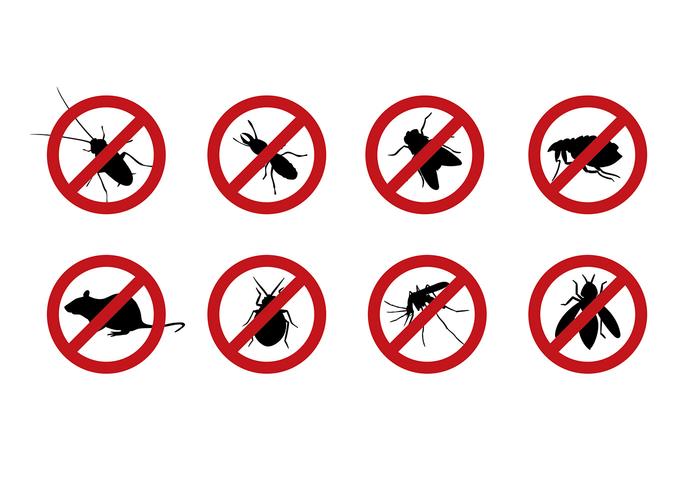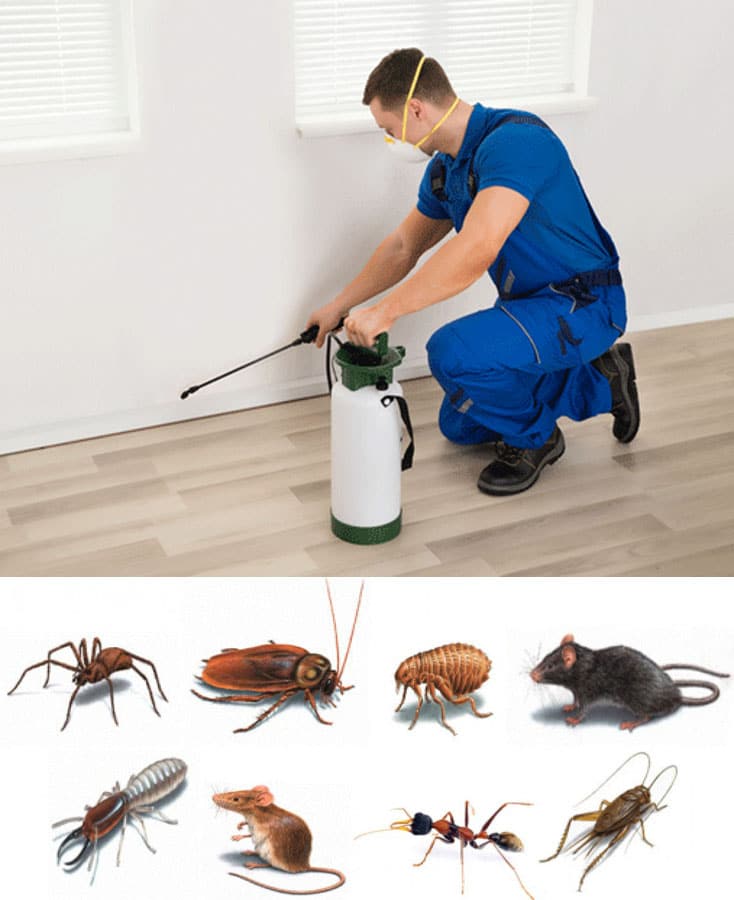Safe and Trustworthy Insect Control for Lasting Defense
Effective bug management requires a multifaceted approach that stabilizes eco-friendly honesty with the need for reliable bug reductions. The subtleties of these methods may not be instantly clear, prompting a more detailed exam of the techniques that can lead to lasting parasite control outcomes.
Understanding Pest Control Methods
Parasite control incorporates a variety of techniques focused on handling and eradicating unwanted insects and rats that can endanger both wellness and residential or commercial property. Understanding these approaches is vital for reliable parasite administration.
The key categories of bug control methods consist of mechanical, biological, and chemical approaches. Mechanical techniques involve physical obstacles and catches to protect against bug entrance and capture undesirable varieties. Using displays on home windows or employing sticky traps can significantly decrease parasite populations without presenting unsafe substances - exterminator coquitlam.

Chemical pest control is frequently the most identified method, making use of chemicals to remove insects. These chemicals can be effective however must be made use of with caution to stay clear of unfavorable impacts on non-target varieties and the environment.
Advantages of Eco-Friendly Solutions
Exactly how can eco-friendly options change bug control techniques? The adoption of green pest control approaches supplies many benefits, dramatically improving the effectiveness and security of pest administration.

An additional benefit is the positive influence on neighborhood biodiversity. Environmentally friendly solutions are developed to target particular pests while protecting useful insects and wildlife, promoting a well balanced community. This method straightens with the expanding customer need for lasting methods, improving the track record of insect control companies.
Integrated Insect Administration Techniques
The application of eco-friendly services naturally brings about the fostering of Integrated Bug Management (IPM) techniques, which further boost bug control effectiveness. IPM is a holistic technique that integrates multiple methods to manage bug populations while lessening ecological influence. This strategy emphasizes using organic, cultural, mechanical, and chemical controls, making certain a balanced and sustainable technique of insect management.
One essential facet of IPM is the comprehensive evaluation of insect task and environmental problems. By monitoring pest populaces and determining their life process, practitioners can execute targeted treatments that interfere with the pest's habitat or lifecycle, reducing reliance on chemical pesticides. In addition, cultural practices such as plant rotation and environment manipulation can substantially reduce bug facility and recreation.
Another vital element is the usage of organic control representatives, such as valuable insects or microorganisms, which can naturally subdue parasite populaces. When chemical applications are required, IPM focuses on using low-risk chemicals and uses them selectively, minimizing direct exposure to non-target microorganisms and human beings.
Integrating IPM methods not only improves bug control effectiveness yet additionally advertises a much safer ecological community, straightening with the growing need for sustainable practices in parasite management.
Safe Practices for House Owners
Understanding the significance of risk-free methods in bug control can empower house owners to effectively handle insect problems while protecting their health and the setting. Executing non-toxic techniques and safety nets is crucial in decreasing direct exposure to dangerous chemicals.
House owners must first evaluate their setting for conditions that draw in parasites, such as standing food, clutter, and water waste. Routinely cleansing and sealing entrance factors can hinder bugs from invading the home. Using all-natural you could look here deterrents, such as important oils or diatomaceous earth, can offer efficient choices to chemical pesticides.
When chemical therapies are necessary, property owners need to opt for items that are especially labeled as safe for residential use. It is important to follow application guidelines meticulously to prevent too much exposure. Using targeted therapies in locations where bugs are recognized, instead than blanket spraying, can substantially decrease chemical use.
Lastly, preserving open interaction with pest control experts is pest control bugs vital. Property owners should ask about the security of items used and request eco-friendly options whenever possible. By embracing these safe techniques, house owners can create a much healthier living environment while properly handling bug problems.

Tips for Long-Term Security
Developing an insect administration strategy that stresses long-lasting protection can considerably improve the effectiveness of the safe practices previously discussed. To achieve this, home owners should implement normal evaluations of their building, focusing on hidden areas such as attic rooms, basements, and crawl rooms. Early discovery of insect task is important in avoiding problems from taking hold.
Furthermore, maintaining a tidy atmosphere is important. This consists of appropriate food storage space, quickly cleansing spills, and regularly disposing of waste. These practices decrease attractants that attract bugs into the home. Moreover, sealing entrance points, such as fractures around doors and home windows, can successfully obstruct prospective insect accessibility.
Landscape design must likewise be thought about; maintaining plants cut and preserving a range between greenery and the home minimizes concealing areas for pests. Using all-natural deterrents, such as essential oils or diatomaceous planet, can additionally inhibit invasions without turning to harsh chemicals.
Finally, teaming up with a specialist insect control solution for periodic assessments can provide an extra layer of protection. These experts can supply customized recommendations and advanced treatments, making sure that your home remains shielded versus pests in the long term.
Conclusion
In conclusion, reliable and safe insect control needs a multifaceted approach that emphasizes environment-friendly approaches and integrated insect monitoring. By executing natural deterrents, conducting regular evaluations, and keeping correct hygiene, building owners can dramatically lower insect populaces while protecting beneficial insects and the atmosphere. Cooperation with professional bug control solutions enhances the efficiency of these methods, making sure tailored solutions that give long lasting protection and comfort versus future problems.
Reliable insect management requires a diverse method that balances environmental stability with the requirement for efficient bug reductions. The adoption of eco-friendly insect control methods offers countless benefits, significantly enhancing the try this site efficiency and security of bug administration.The execution of environmentally friendly options naturally leads to the fostering of Integrated Parasite Management (IPM) approaches, which additionally boost parasite control effectiveness. exterminator coquitlam. By checking bug populaces and identifying their life cycles, practitioners can implement targeted interventions that interrupt the parasite's habitat or lifecycle, reducing reliance on chemical pesticides.In conclusion, trustworthy and risk-free parasite control calls for a diverse approach that emphasizes environment-friendly methods and incorporated bug management